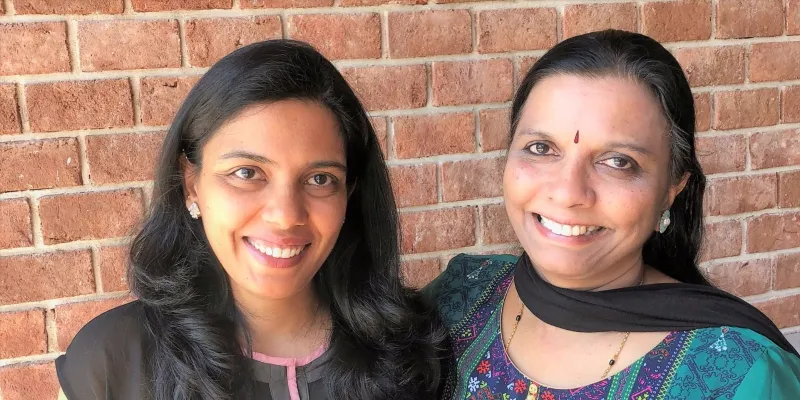Bengaluru-based Niramai secures top spot at Japan's Hack Osaka 2019 event
The city of Osaka in Japan, which is known for its ecosystem of life sciences companies, has been fostering an innovation network by inviting startups from outside the country.
Niramai, the Bengaluru-based healthtech startup that is developing an AI-based solution for early
detection of breast cancer, bagged the gold prize at the Hack Osaka event, which is designed to attract startups with innovative technologies from both inside and outside Japan from various sectors.
At Hack Osaka held in the month of March, 10 selected startups from Japan and other countries participated in the pitch event. These 10 companies were selected out of total 130 applicants to give pitches before the judges.

Niramai founders: Geetha Manjunath (right) and Nidhi Mathur
Also read: AI healthcare startup Niramai raises $6M Series A funding led by Dream Incubator
Among the selected participants, Bengaluru-based healthtech startup Niramai cornered the top spot and bagged the gold prize. The company is one of the startups recommended by the Japanese government organisation JETRO Bengaluru to participate in Hack Osaka event.
The event collaborates with various ecosystem players such as investors, large enterprises, and students to co-create innovation from the hub city, Osaka. The city of Osaka is being promoted as “open innovation city” and is also known as life sciences cluster of Japan having presence of pharmaceutical companies, food manufacturers, and universities engaged in bio medicines.
Founded in 2016 by Geetha Manjunath and Nidhi Mathur, Niramai uses artificial intelligence and image analysis technology to provide a solution for early detection of breast cancer. Within two years of research of the launch of the breast cancer detection solution, it is now available in 23 locations across 10 cities in India. More than 7,000 women have gone through this test. Currently, there are two business models supported by the company. The first is an end-to-end breast cancer screening solution using Niramai's technology at a hospital, and the second is group screening service under the company’s screening outreach division.
Also read: These startups are using AI to make healthcare convenient and low-cost







